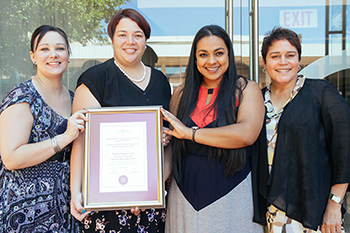Latest News Archive
Please select Category, Year, and then Month to display items
23 April 2020
|
Story Cornelius Hagenmeier
|
Photo Pixabay

The iKudu project, which is an European Union-funded Capacity Building in Higher Education (CBHE) project, has recently launched its blog, which aims to amplify the diverse voices of all iKudu stakeholders. In this space, members of the iKudu team will regularly share their views on the project and related international education topics.
The iKudu project focuses on developing a contextualised South African concept of Internationalisation of the Curriculum (IoC), which integrates Cooperative Online International Learning (COIL) virtual exchanges. The project was launched by the UFS in 2019, together with nine European and South African partner universities. It is funded by the European Union’s Erasmus+ programme with EUR999 881 (approximately R20 million) and is implemented over a three-year period.
The iKudu project is based on the fundamental belief that it is necessary to rethink internationalisation in an uncertain world. First, it is crucial to recognise and transform the power dynamics underlying international academic collaboration. Second, it is essential to develop pedagogies that allow every student to participate in international education, integrating technology where appropriate.
However, while all stakeholders agree on the fundamental tenets of the project and its principal goals, all iKudu stakeholders contribute different perspectives. In the blog, the iKudu stakeholders will provide a space for intellectual discourse on the project and related international education topics, which will allow constructive and critical engagement.
The link to the blog can be found at: https://www.ufs.ac.za/ikudu/ikudu-blogs/Transforming-Curricula-through-Internationalisation-and-Virtual-Exchanges
Communication Science lecturers walk away with Best Teachers Award
2015-11-26

The winners: Jolandi Bezuidenhout, Rentia Engelbrecht, Jamie-Lee Nortje with Prof Milagros Rivera (Head of Department of Communication Science). |
Jolandi Bezuidenhout, Rentia Engelbrecht, and Jamie-Lee Nortje are the names behind the award-worthy A-Step programme. These lecturers in the Department of Communication Science at the University of the Free State (UFS) have been facilitating extra class for students in the extended programme since 2008. On 12 November 2015, they celebrated a major milestone when the programme received the Excellence in Teaching and Learning Innovation Award.
The annual awards are hosted by Dr Lis Lange Vice-Rector: Academic at the UFS, and administrated through the Centre for Teaching and Learning (CTL).
It was the first time that the Faculty of the Humanities had received the award. The lecturers were named the Best Teachers in the UFS, emerging in first place in the category: Student Engagement and Learning.
The A-Step sessions form part of a governmental programme dedicated to supporting students by offering diverse curriculum-related activities. Students attend two classes per week where they are equipped with language and life skills. As of 2015, the sessions were expanded to benefit not only the extended programme but all 788 students in Introduction to Verbal and Nonverbal Communication (KOM114).
“The activities are based on theoretical work we do in the mainstream classes,” explained Nortje. Primarily, the activities are meant to “help the student engage the work in a meaningful way so that they can understand it,” she said, which is why the sessions are designed in a fun and creative way.
The ‘Best Teachers’ organised and developed the A-Step sessions collectively and diligently over the years. The award, and the improved students’ academic performance, bears testimony to the effectiveness of their teaching style.
Marissa Grobbelaar, the Academic Staff and Development Project coordinator at the CTL, commended the lecturers’ efforts. Grobbelaar believes that “the way they approached their teaching and the passion which was evident in it,” was one of the reasons they deserved the award.
A former A-Step student, Rorisang Sekhasa, attested that, “the programme was very helpful because you get to have one-on-one sessions with your lecturer, and understand the work better. What was done in class is elaborated on in detail.”